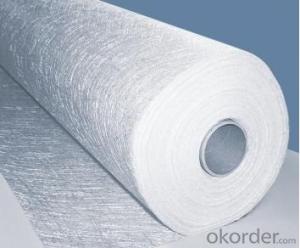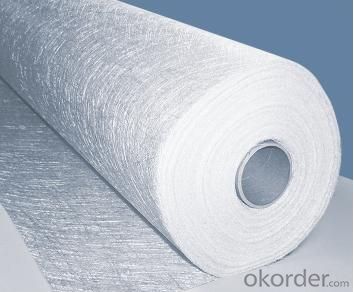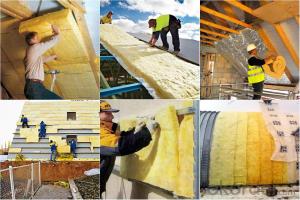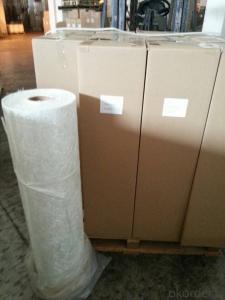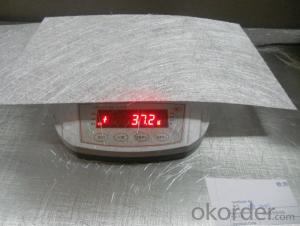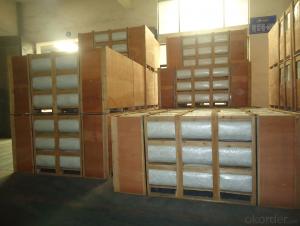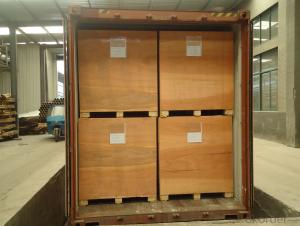Fiberglass Mat Tissue e-glass Chopped Strand Mat 3000mm
- Loading Port:
- Shanghai
- Payment Terms:
- TT or LC
- Min Order Qty:
- -
- Supply Capability:
- 10000MT m²/month
OKorder Service Pledge
OKorder Financial Service
You Might Also Like
1.Breif Introduction
Chopped strand mat with width 3000mm
2.Main Features
With Excellent compatibility with resin,heating resistance,Faster and well wet-out
Chopped strand mats are made of chopped strands of 50mm in length,which are randomly dispersed and bonded together by the polyester binder in powder or emulsion.
Chopped strand mats are mainly used in FRP fields,such as hand lay-up,filament winding and molding process. The typical products are panels,tanks,boats,automotive parts,cooling towers,pipes and so on.
3.Specifications
Glass type: E-glass and C-glass Chopped Strand Mat.
Bond type: Powder or Emulsion.
Roll Width: 3000mm.
Roll weight/: 180kgs.
Normal types :28kgs.30kgs.35kgs.
4.FAQ
Q: Which knid of payment terms can you accept?
A: We can accept 30% prepayment, 70% payment before shippment. LC is also accepted
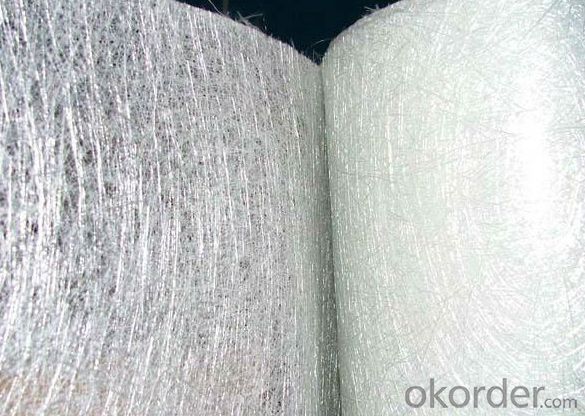
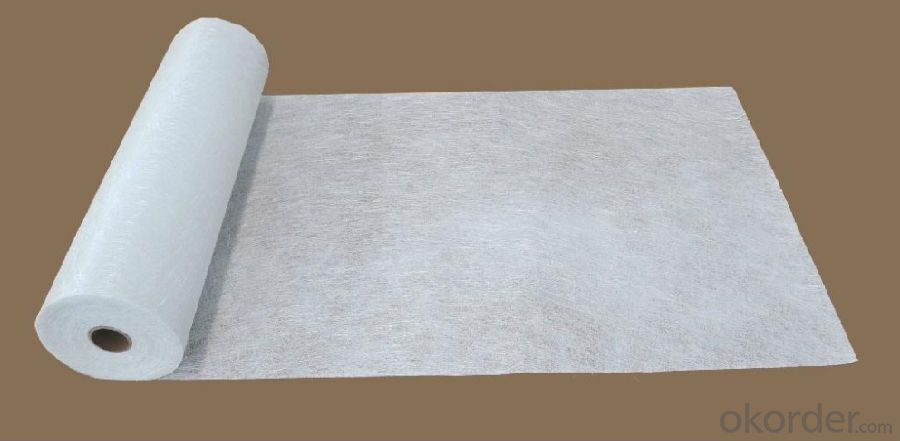
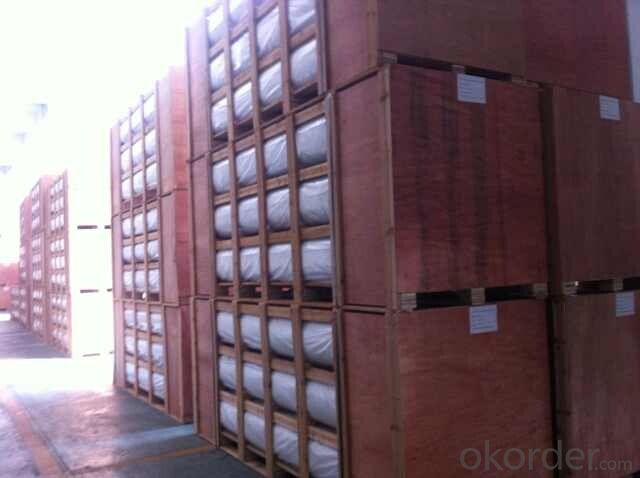
- Q: Is fiberglass mat tissue suitable for outdoor applications?
- Yes, fiberglass mat tissue is suitable for outdoor applications. Fiberglass mat tissue is made from woven fiberglass strands that are held together with a binder. This material is highly resistant to water, weather, and UV radiation, making it ideal for use in outdoor environments. It can be used in various outdoor applications such as roofing, insulation, and construction. The waterproof and weatherproof properties of fiberglass mat tissue ensure its durability and longevity when exposed to the elements. Additionally, it is lightweight and easy to handle, making it a versatile choice for outdoor projects.
- Q: How is fiberglass mat tissue used in the production of sports equipment?
- The unique properties and advantages of fiberglass mat tissue make it widely used in the production of sports equipment. This material, made from fine glass fibers bonded together with a binder, is a non-woven fabric with a smooth texture. Despite being lightweight, it is strong and durable. In the manufacturing of sports equipment, fiberglass mat tissue is commonly used as a reinforcing layer. Its purpose is to enhance the strength and rigidity of the final product, making it more resistant to impact and stress. This is particularly important in sports equipment where durability and performance are crucial, such as surfboards, skateboards, snowboards, and tennis rackets. For instance, in the construction of a surfboard, fiberglass mat tissue is typically layered over a foam core and then impregnated with epoxy resin. This combination creates a structure that can withstand the forces exerted by the waves while remaining lightweight. Similarly, in snowboards and skateboards, fiberglass mat tissue is applied to the wooden core to provide additional strength and stiffness, which improves control and responsiveness. Furthermore, fiberglass mat tissue is also utilized in the production of protective gear like helmets and shin guards. By incorporating this material into the manufacturing process, these items can become more impact resistant and capable of absorbing shocks. This is particularly important in high-risk sports, as the fiberglass mat tissue acts as a protective layer, dispersing and diminishing the force of impacts. To summarize, fiberglass mat tissue is vital in the production of sports equipment as it reinforces structures, enhances strength and durability, and improves performance. Its lightweight nature and superior mechanical properties make it an ideal choice for various sporting applications, ensuring athletes can rely on their equipment to perform well while minimizing the risk of injury.
- Q: Is fiberglass mat tissue compatible with different resin systems?
- Yes, fiberglass mat tissue is compatible with different resin systems. It can be used with various types of resins such as polyester, epoxy, vinyl ester, and even thermoplastics. The fiberglass mat tissue acts as a reinforcement material that enhances the strength and durability of the final composite product when combined with different resin systems.
- Q: How is fiberglass mat tissue used in the production of shower enclosures?
- Fiberglass mat tissue is used in the production of shower enclosures to reinforce the structure and provide added strength. It is typically applied as a layer between the gel coat and the fiberglass resin, creating a durable and rigid surface that can withstand daily use and potential impacts. The fiberglass mat tissue helps prevent cracking and warping, ensuring the shower enclosure maintains its shape and integrity over time.
- Q: Is fiberglass mat tissue suitable for insulation in laboratories?
- Fiberglass mat tissue is indeed suitable for insulation in laboratories. It is a commonly used material for thermal insulation due to its excellent thermal properties. Fiberglass mat tissue has a high resistance to heat transfer, making it an effective insulator to maintain stable temperatures within laboratory spaces. Additionally, fiberglass mat tissue is also resistant to moisture, chemicals, and fire, which are crucial factors in laboratory settings. It can withstand exposure to harsh chemicals and does not degrade or lose its insulating properties over time. This makes it ideal for insulation in laboratories where various chemicals and substances are handled. Furthermore, fiberglass mat tissue is easy to install and can be customized to fit specific insulation requirements. It can be applied to walls, ceilings, and pipes to create a barrier that prevents the transfer of heat, ensuring a controlled environment within the laboratory. Overall, fiberglass mat tissue is a suitable choice for insulation in laboratories due to its thermal resistance, chemical resistance, fire resistance, and ease of installation. It helps to maintain stable temperatures, protects against chemical exposure, and ensures safety in laboratory environments.
- Q: Does fiberglass mat tissue have any fire-resistant properties?
- Fiberglass mat tissue indeed possesses fire-resistant properties. Its composition of glass fibers and a thermosetting resin inherently grants it fire resistance. When subjected to high temperatures or flames, fiberglass mat tissue resists ignition and combustion, instead hindering flame propagation and aiding fire containment. As a result, fiberglass mat tissue proves suitable for fire protection necessities in various applications, including insulation, fire barriers, and fireproof panels. Nevertheless, it is crucial to acknowledge that although fiberglass exhibits fire resistance, it remains susceptible to melting or burning in extreme circumstances.
- Q: What is the chemical resistance of fiberglass mat tissue?
- Fiberglass mat tissue exhibits excellent chemical resistance due to the inherent properties of the fiberglass material. The mat tissue is typically composed of glass fibers that are woven or bound together, providing a barrier against a wide range of chemicals. The glass fibers themselves are highly resistant to corrosion, making fiberglass mat tissue suitable for use in environments where exposure to chemicals is a concern. The chemical resistance of fiberglass mat tissue can vary depending on the specific resin or binder used in the manufacturing process. Different types of resins may provide enhanced resistance to certain chemicals, while others may be more susceptible to degradation. It is important to consider the specific chemicals that will come into contact with the fiberglass mat tissue and select a resin or binder that is compatible with those substances. In general, fiberglass mat tissue is known for its resistance to acids, alkalis, solvents, and many other chemicals commonly found in industrial and commercial settings. It can withstand exposure to a wide range of corrosive substances, making it a versatile and durable material for various applications. However, it is worth noting that prolonged exposure to highly concentrated or aggressive chemicals may eventually cause some degradation or deterioration of the fiberglass mat tissue. Therefore, it is essential to consult the manufacturer's specifications and guidelines to ensure proper chemical compatibility and performance in specific environments.
- Q: Can fiberglass mat tissue be used for insulation in power plants?
- Yes, fiberglass mat tissue can be used for insulation in power plants. It is a common material used for thermal insulation due to its excellent heat resistance and insulation properties.
- Q: How does the fiber content of fiberglass mat tissue affect its strength?
- The fiber content of fiberglass mat tissue directly affects its strength. A higher fiber content typically results in a stronger fiberglass mat tissue. The fibers provide reinforcement and structural integrity to the tissue, making it more resistant to breaking or tearing. Additionally, a higher fiber content enhances the overall durability and load-bearing capacity of the fiberglass mat tissue.
- Q: Is fiberglass mat tissue suitable for automotive applications?
- Fiberglass mat tissue is indeed suitable for automotive applications. This versatile material offers numerous benefits when utilized in the automotive industry. It boasts excellent strength and durability, crucial qualities for automotive parts that must endure harsh conditions and heavy use. Moreover, fiberglass mat tissue possesses commendable thermal and electrical insulation properties, making it ideal for applications that require resistance to temperature and electrical currents. Furthermore, the lightweight nature of fiberglass mat tissue can contribute to enhanced fuel efficiency and overall vehicle performance. It is also highly malleable, enabling manufacturers to craft intricate automotive parts with precision. Additionally, this material resists corrosion, chemicals, and UV radiation, ensuring that automotive components remain reliable and long-lasting. In summary, the exceptional qualities of fiberglass mat tissue make it an optimal choice for various automotive applications, such as body panels, interior components, structural reinforcements, and sound insulation. Its strength, durability, insulation properties, lightweight nature, and resistance to corrosion and chemicals make it a dependable and cost-effective material for the automotive industry.
Send your message to us
Fiberglass Mat Tissue e-glass Chopped Strand Mat 3000mm
- Loading Port:
- Shanghai
- Payment Terms:
- TT or LC
- Min Order Qty:
- -
- Supply Capability:
- 10000MT m²/month
OKorder Service Pledge
OKorder Financial Service
Similar products
Hot products
Hot Searches
Related keywords
